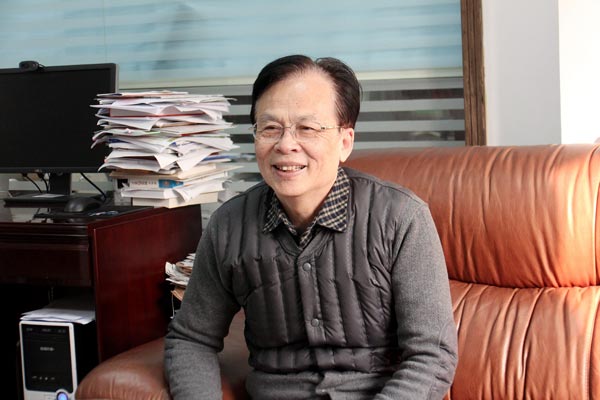Quest for speed drives top quantum scientist
|
Guo Guangcan has a long-cherished dream of popularizing quantum technology in China. Fan Qiong / for China Daily |
When he was named the 2013 CCTV Technology Innovation Person of the Year for his distinguished contribution to research on the quantum computer, Guo Guangcan felt rather surprised.
The award committee told him just days before the ceremony, which was held on Dec 29, that he was one of only two winners elected by netizens nationwide.
"I was wondering how a scientist of quantum technology could draw so much attention online," says Guo.
It may be because netizens are by definition on computers - and always looking for the Next Big Thing. Quantum computers will use the power of atoms to perform memory and processing tasks far faster than silicon-based computers.
The 71-year-old Guo is now a member of the Chinese Academy of Sciences and one of the top scholars in the University of Science and Technology of China. He's overjoyed that his long-cherished dreams have been finally fulfilled - not in the award itself, but in the popularization of quantum technology in China, especially among the young talents.
Guo entered the department of radio electronics at USTC in the 1960s, and he stayed there as a teaching assistant after graduation.
His initial research was focused on laser technology, but he surprised his scientist friends with his jump from lasers to quantum optics after the "cultural revolution" (1966-76), a period which stalled the country's scientific development.
He got no support for his research shift at first. "Nobody in China had ever considered the possibility of solving optics problems with quantum theories before, but I believed that this new field could be very interesting," Guo says.
Guo went to the physics department at the University of Toronto as a visiting scholar in 1981, when he was surprised to find research on quantum optics in some developed countries had begun 20 years earlier. "I realized the other countries had already formed a mature theoretical framework on quantum optics," he says. When the Fifth International Quantum Optics Conference was held at the US-based University of Rochester in 1983, eight young scientists who had very limited grasp of the field were the only Chinese in attendance.
"After the conference, we eight young Chinese held another meeting of our own, which lasted till as late as 2 am." The young men agreed that Chinese scientists should have their own voice in the world's quantum research.
For more China Face series, click here



















